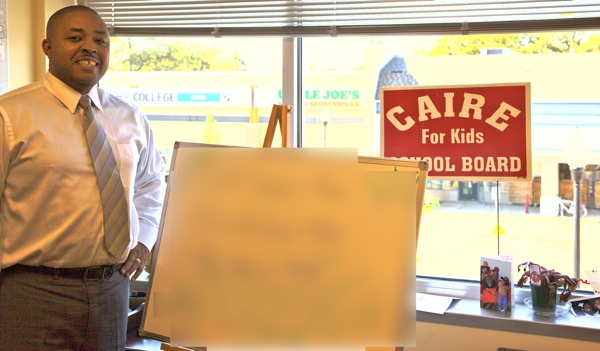Paul Fanlund, via a kind reader:
In fact, the changing face of Madison’s school population comes up consistently in other interviews with public officials.
Police Chief Noble Wray commented recently that gang influences touch even some elementary schools, and Mayor Dave Cieslewicz expressed serious concern last week that the young families essential to the health and vitality of Madison are too often choosing to live outside the city based on perceptions of the city’s schools.
Nerad says he saw the mayor’s remarks, and agrees the challenge is real. While numbers for this fall will not be available for weeks, the number of students who live in Madison but leave the district for some alternative through “open enrollment” will likely continue to grow.
“For every one child that comes in there are two or three going out,” Nerad says, a pattern he says he sees in other urban districts. “That is the challenge of quality urban districts touched geographically by quality suburban districts.”
The number of “leavers” grew from 90 students as recently as 2000-01 to 613 last year, though the increase might be at least partly attributed to a 2007 U.S. Supreme Court ruling that greatly curtailed the ability of school districts to use race when deciding where students will go to school. In February 2008, the Madison School Board ended its long-standing practice of denying open enrollment requests if they would create a racial imbalance.
Two key reasons parents cited in a survey last year for moving children were the desire for better opportunities for gifted students and concerns about bullying and school safety. School Board member Lucy Mathiak told me last week that board members continue to hear those two concerns most often.
Nerad hears them too, and he says that while some Madison schools serve gifted students effectively, there needs to be more consistency across the district. On safety, he points to a recent district policy on bullying as evidence of focus on the problem, including emphasis on what he calls the “bystander” issue, in which witnesses need to report bullying in a way that has not happened often enough.
For all the vexing issues, though, Nerad says much is good about city schools and that perceptions are important. “Let’s be careful not to stereotype the urban school district,” he says. “There is a lot at stake here.”
Related: the growth in outbound open enrollment from the Madison School District and ongoing budget issues, including a 10% hike in property taxes this year and questions over 2005 maintenance referendum spending.
The significant property tax hike and ongoing budget issues may be fodder for the upcoming April, 2011 school board election, where seats currently occupied by Ed Hughes and Marj Passman will be on the ballot.
Superintendent Nerad’s statement on “ensuring that we have a stable middle class” is an important factor when considering K-12 tax and spending initiatives, particularly in the current “Great Recession” where housing values are flat or declining and the property tax appetite is increasing (The Tax Foundation, via TaxProf:
The Case-Shiller index, a popular measure of residential home values, shows a drop of almost 16% in home values across the country between 2007 and 2008. As property values fell, one might expect property tax collections to have fallen commensurately, but in most cases they did not.
Data on state and local taxes from the U.S. Census Bureau show that most states’ property owners paid more in FY 2008 (July 1, 2007, through June 30, 2008) than they had the year before (see Table 1). Nationwide, property tax collections increased by more than 4%. In only four states were FY 2008’s collections lower than in FY 2007: Michigan, South Carolina, Texas and Vermont. And in three states–Florida, Indiana and New Mexico–property tax collections rose more than 10%.
It will be interesting to see what the Madison school District’s final 2010-2011 budget looks like. Spending and receipts generally increase throughout the year. This year, in particular, with additional borrowed federal tax dollars on the way, the District will have funds to grow spending, address the property tax increase or perhaps as is now increasingly common, spend more on adult to adult professional development.
Madison’s K-12 environment is ripe for change. Perhaps the proposed Madison Preparatory Academy charter school will ignite the community.
 .
.